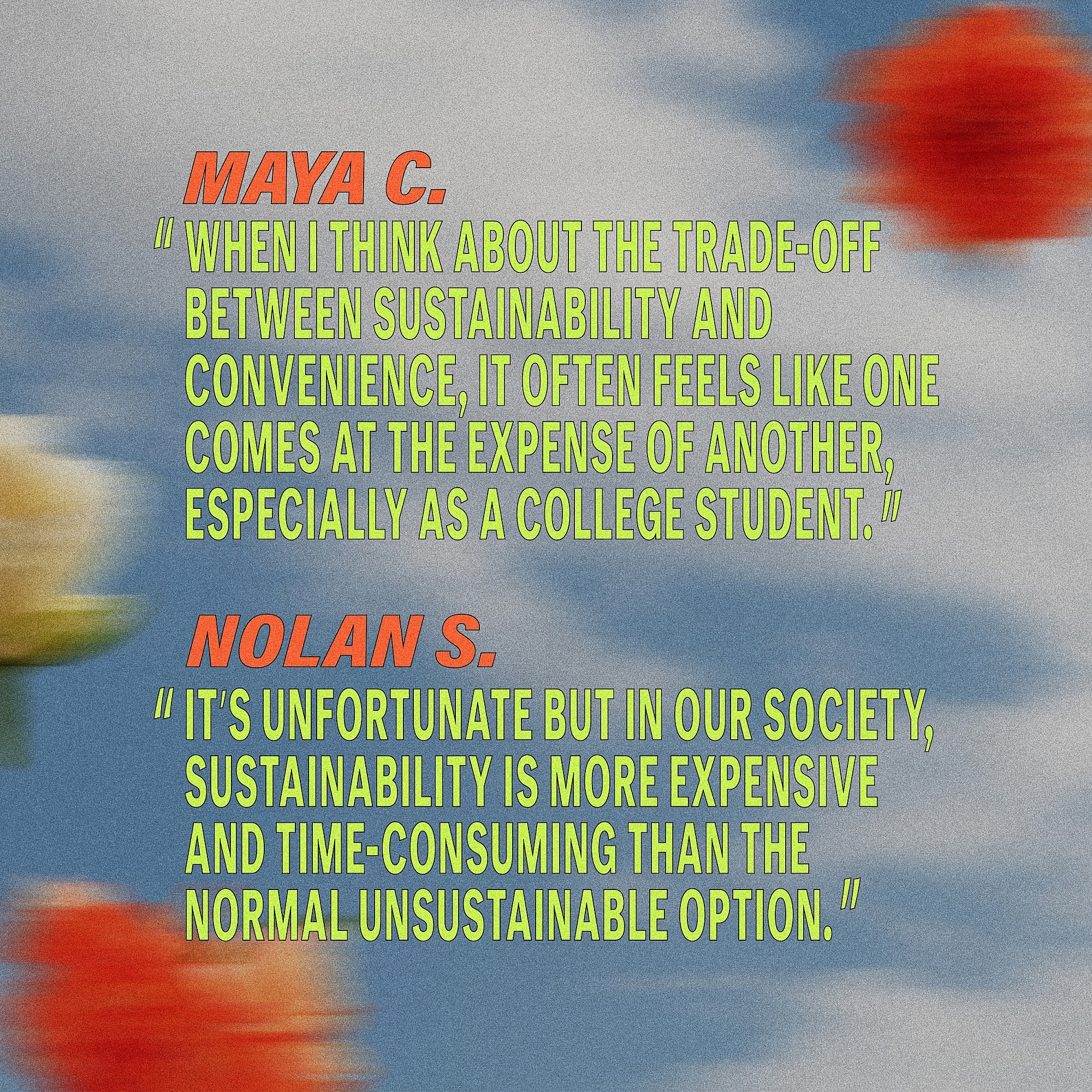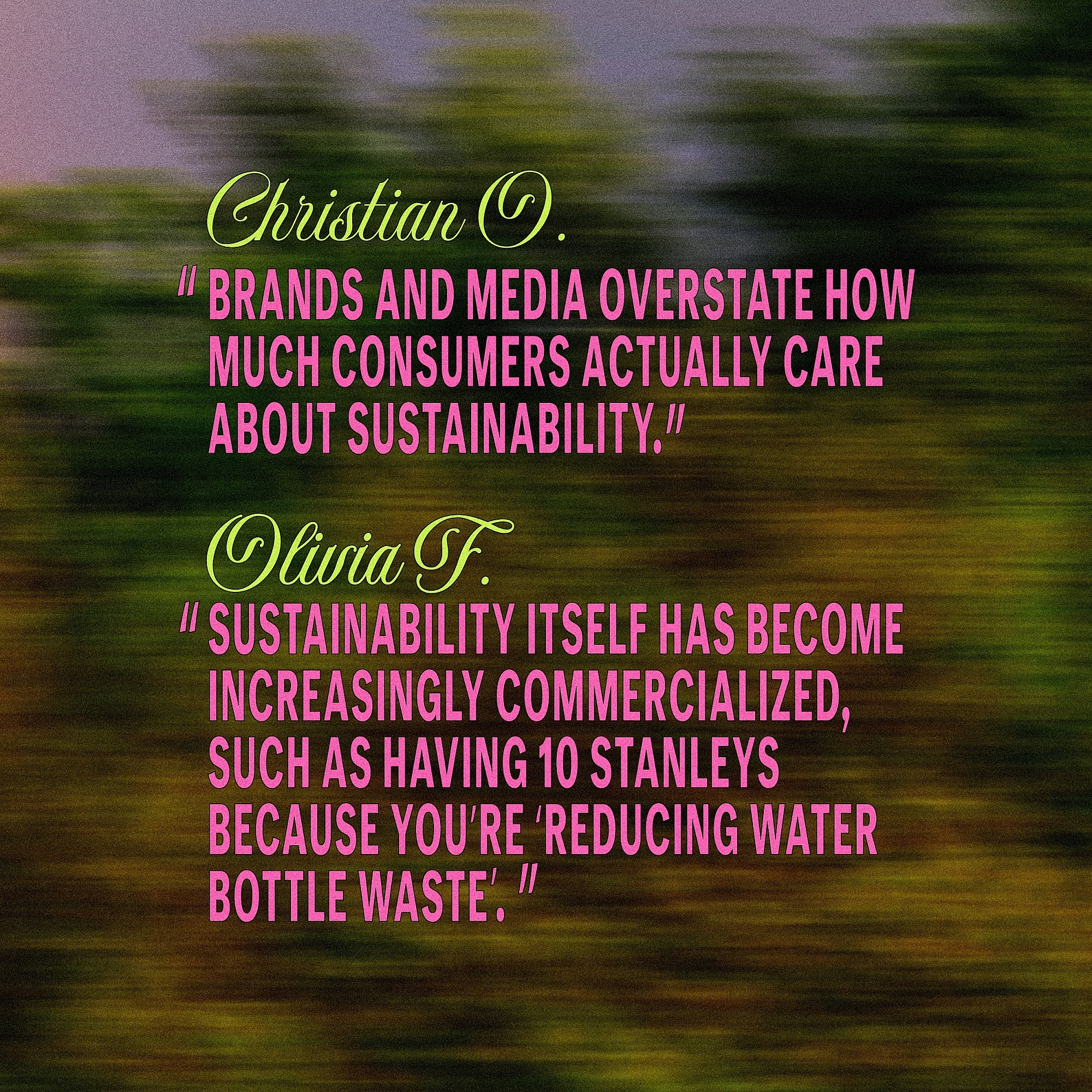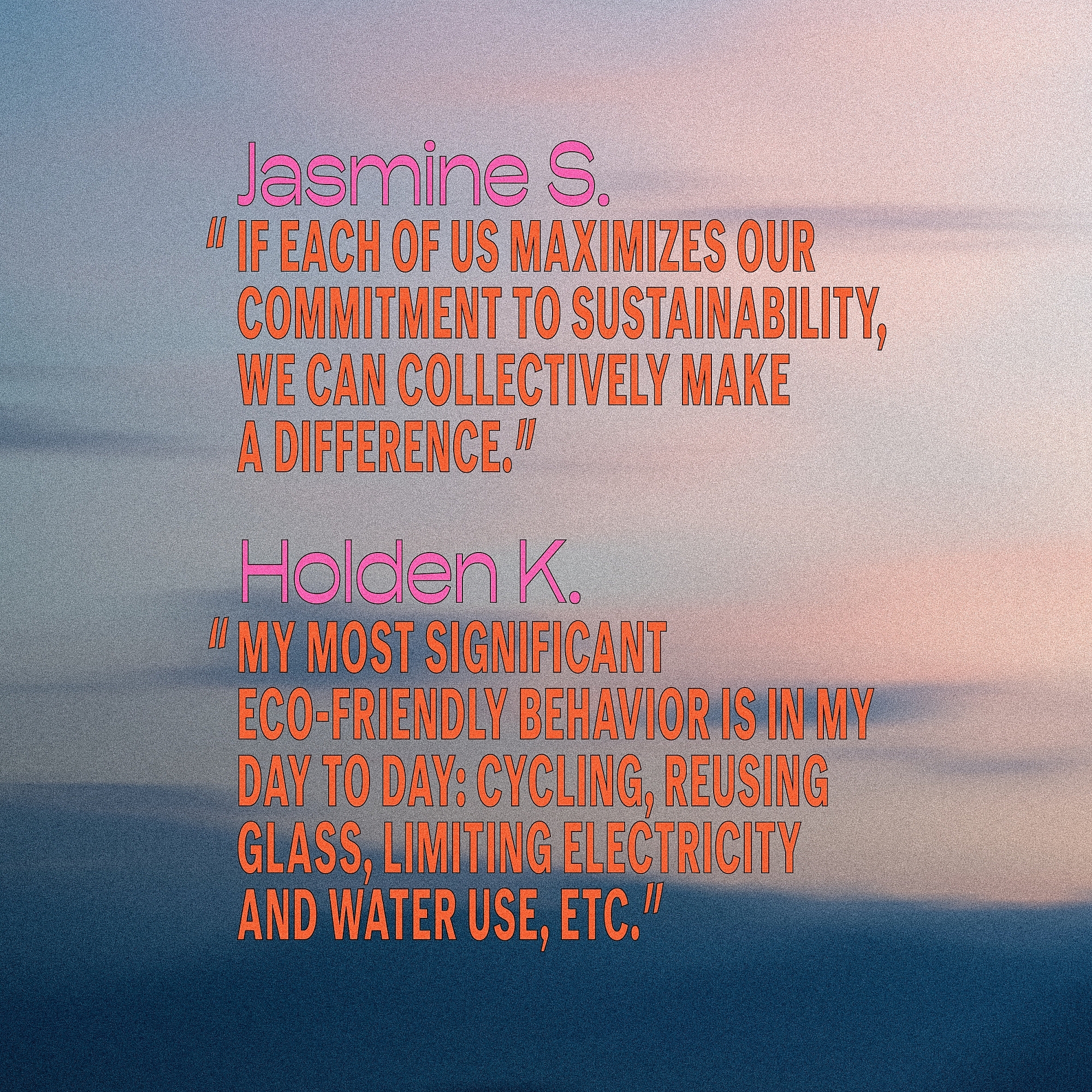Sustainability Is Too Expensive for the Gen That Cares Most

- Text Jamila Jalloh
- Design Paige Nuckols
We recently launched Group Chat, a collective of culturally savvy Gen Zers to fuel our youth insights. They’re all over the US, aged 18 to 27, and boast a broad range of interests and hot takes. Occasionally, we’ll share what we’re learning from the chat. If you’d like to apply, click here! And if you’d like to ask a question, click here!
It comes as no surprise that Gen Z cares a lot about the planet, but when time, money and energy run low, sustainability falls to the backburner.
In 2024, 62% of Gen Zers felt worried or anxious about climate change, but simultaneously, 56% are living paycheck to paycheck. And while climate crisis fears still loom, the cost of living is a more immediate crisis. It was Gen Z’s top concern in 2024, with unemployment right behind it. Climate change came in at number three.
To understand more about how young people choose between sustainability and convenience, or if the two can coexist at all, we asked our Gen Z focus group, Group Chat, what they prioritize and why.
Collectively, they agree that sustainability is a privilege, because it requires time and money. Members pointed to the price differences between eco-friendly options compared to less eco-friendly alternatives. For example, the price discrepancy between an electric and gas car, organic and non-organic produce and sustainably made clothing and fast fashion. And the numbers stack up: seventy three percent of American consumers believe that eco-friendly products are more expensive than their unsustainable counterparts according to a 2024 report by YouGov.
On top of money, it costs time to be sustainable. This hits especially hard for students and those just starting their careers. “It feels like everyone is in hyperproductive mode all the time; going to school, working multiple jobs, managing extracurriculars,” said Maya C. “Daily sustainability practices can undermine that.”
For those who don’t live near public transportation, managing all these aspects of life while keeping environmentalism top of mind is extra challenging. “If I were to take a bus or train where I live in Florida, it would take me twice as long to get anywhere [compared] to driving myself,” said Jade H. Others note there aren’t enough clothing options in plus sizes to shop sustainably. “To stop shopping fast fashion would mean sacrificing a very large amount of convenience and money,” said Eternity H.
Gen Z does say they are willing to pay 10% more for a sustainable product, but even when young people have the time and money to choose eco-friendly brands, they’re skeptical of the impact. “[It’s] pretty easy to spot greenwashing from a mile away,” Christian O. said. This speaks to why 88% of American Gen Zers say they don’t trust brands’ ESG (Environmental, Social and Governance) claims.
Even with that awareness, Group Chat knows their generation has fallen victim to PR and marketing stunts, resulting in overconsumption. “Someone I knew from college consistently replaced items they owned with new ‘eco-friendly’ products,” said Anika K., “even though the best option would have been to continue using something they already owned.” This is similar to how collecting Stanley cups overshadows the purpose of owning a reusable mug to limit consumption.
Young people know these habits miss the point. “Sustainability can, but shouldn’t necessarily, dictate trends, because following a trend cycle is an easy way to fall into overconsumption,” said Anika K.
Since the 2016 Paris climate agreement, one study found that just 57 companies are directly linked to 80% of the world's global fossil CO2 emissions. “I know that no matter what I do to minimize my impact, I will still dwarf in comparison to the pollution of these power structures,” said Olivia F. Young people recognize and care about this imbalance, which speaks to why 55% of Gen Z say they research a brand’s environmental impact and policies before accepting a job from them.
Some Group Chat members also referenced the X account that tracks Taylor Swift’s private jet flights (one of which totaling only 13 minutes and 28 miles of travel, yet racking up 530 pounds of jet fuel.) “This is one of the reasons topics like Taylor Swift's travel ignite such a fury in Gen Z,” said Sarah M., “because we’re doing our best and it’s infuriating to see people who have the means for sustainability and convenience not do their part.”
“Although my contribution is minimal, it’s still a contribution, so I attempt to be as sustainable as possible,” said Meagan F.
Gen Z undoubtedly cares about doing what’s best for the planet, but the desire for convenience isn’t going away anytime soon, especially for a generation who grew up expecting instantaneous, on-demand and seamless experiences. There just isn’t enough time, money or energy for people starting their adult lives to always choose the inconvenient option. But if they’re given affordable, accessible, eco-friendly options that also feel genuine, young people might finally get the chance to have it all.






